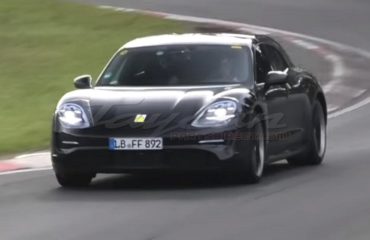ABOUT
BentaygaParts.com is dedicated to bringing our discerning clients the highest quality and most exclusive body kits, carbon fiber add-ons, wheels, and performance upgrades in the world.
From MANSORY to ONYX, PRIOR to STARTECH, we have you covered. While we carry a full lineup of wheels from these tuners, that's not your only choice. We also carry ADV.1, HRE, Modulare, and Strasse.
With regard to performance, we offer exhaust systems from Capristo, MANSORY, STARTECH, and Quicksilver. Combine the sport exhaust with an ECU Upgrade from ETG or RENNtech, and you get a much more aggressive sound, along with the HP & TQ to back it up!
Please call us at (888) 278-5020 with any questions or special requests.
Thank you!
-- BentaygaParts.com
BLOG
Recent Posts
-

Transform Your Taycan with the R-Zentric GTZ Aerodynamic Kit
Elevate the performance and aesthetics of your ... -

Porsche Taycan [2019+] with PD TE Diffusor Add-On
Unleash the true potential of your Porsche Tayc... -

Illuminate Your Entry: BRABUS Carbon Scuff Plates for Porsche Taycan
Elevate the entrance of your Porsche Taycan wit... -

Porsche Recalls Taycan Models for Battery Issue
Porsche, renowned for its high-performance vehi... -

2023 Porsche Taycan Turbo S Gets a Secret Speed Boost
In the world of automotive engineering, even th...
CONTACT
BentaygaParts.com. All Rights Reserved © 2018-2019.





















